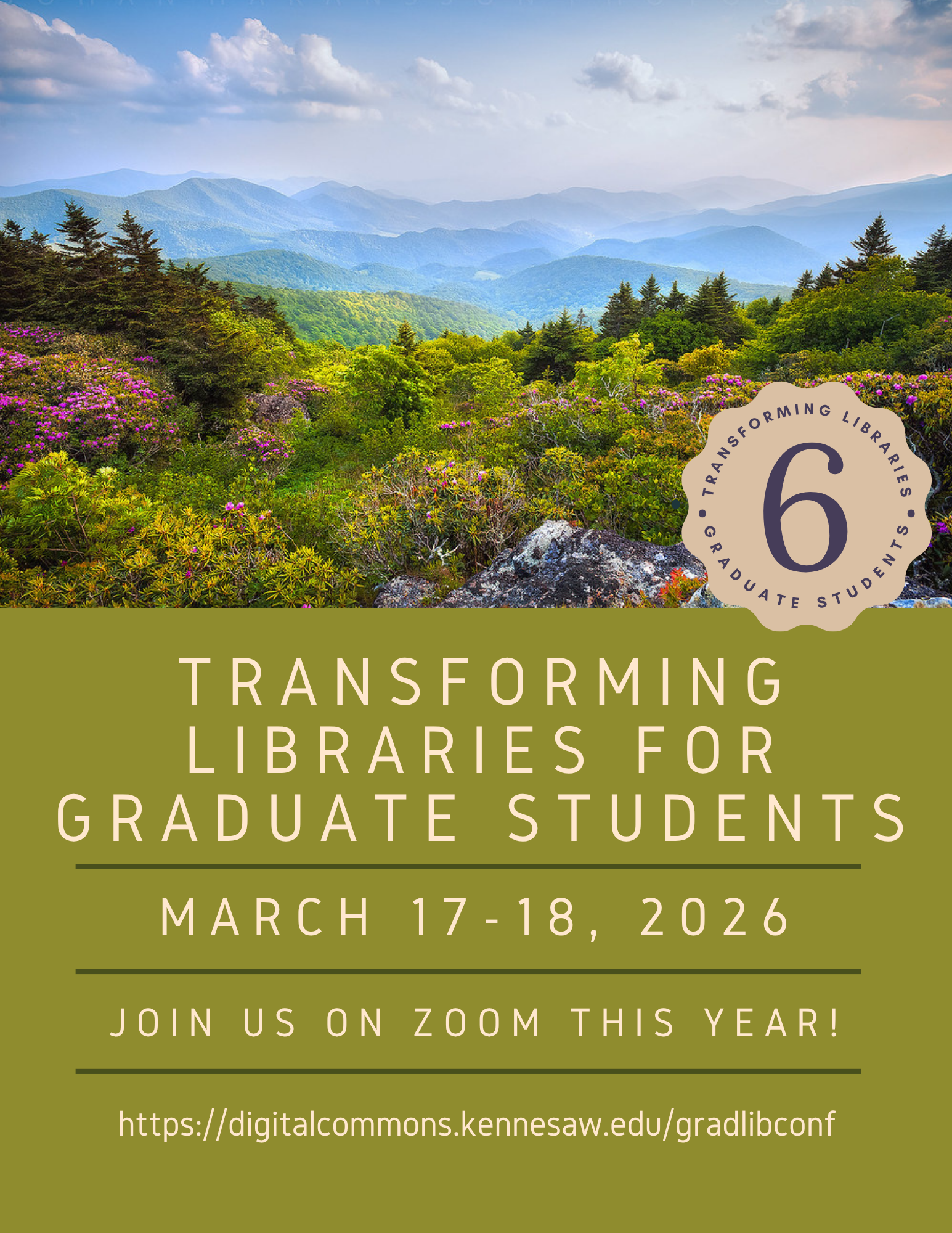Start Date
3-16-2022 1:00 PM
End Date
3-16-2022 2:00 PM
Keywords
Online instruction, distance learning, embedded librarianship, non-traditional students, collection development
Description of Proposal
Athens State University is located in Athens, Alabama in the northern part of Alabama bordering Giles County, Tennessee. It is one of the only upper-level universities serving juniors, seniors, and graduate students in the country. The student body consists primarily of non-traditional and first-generation students. In 2014, Athens State University was approved to offer a graduate program in Global Logistics and Supply Chain Management in the College of Business by the Alabama Commission on Higher Education (ACHE). Since then, Athens State University has expanded its graduate offerings to include five additional fields of study: Strategic Healthcare Management and Administration, Strategic Human Resource Management, Strategic Leadership and Business Analytics, Religious Studies, and Career and Technical Education. Currently, more graduate degrees are in the development stages in all three colleges: Business, Arts and Sciences, and Education. All of the graduate programs are delivered asynchronously online with some classes having additional synchronous components.
How have library instruction, outreach, and collection development evolved to meet the needs of the graduate student population? How do librarians best serve graduate students in a strictly online environment? How do librarians promote active learning techniques such as providing micro-lectures, including welcome and orientation videos, planning effective discussions with prompts, and increasing motivation in an online environment? What are some effective and reflective techniques and tools to promote inclusivity such as signaling ally-ship and assessing online learning objects for accessibility and ADA compliance?
Athens State University librarians hold faculty status and serve both undergraduate and graduate students as subject liaisons. This presentation will share the librarians’ experiences of transitioning from a library serving exclusively undergraduates to one serving both undergraduate and graduate students. Given that the programs are offered solely online, librarians will also discuss the challenges and successes encountered along the way. Future areas of discussion include quantitative and qualitative assessment plans. Participant takeaways include the following:
- Adjusting collection assessment for budget allocation
- Adapting collection development for graduate programs
- Building working relationships with graduate teaching faculty
- Providing support to graduate students in an online environment
- Promoting inclusivity and accessibility
Included in
Arts and Humanities Commons, Business Commons, Higher Education Commons, Library and Information Science Commons
Transitioning to a Master's Degree Granting University: Implications for Librarian Instruction, Outreach, and Collection Development
Athens State University is located in Athens, Alabama in the northern part of Alabama bordering Giles County, Tennessee. It is one of the only upper-level universities serving juniors, seniors, and graduate students in the country. The student body consists primarily of non-traditional and first-generation students. In 2014, Athens State University was approved to offer a graduate program in Global Logistics and Supply Chain Management in the College of Business by the Alabama Commission on Higher Education (ACHE). Since then, Athens State University has expanded its graduate offerings to include five additional fields of study: Strategic Healthcare Management and Administration, Strategic Human Resource Management, Strategic Leadership and Business Analytics, Religious Studies, and Career and Technical Education. Currently, more graduate degrees are in the development stages in all three colleges: Business, Arts and Sciences, and Education. All of the graduate programs are delivered asynchronously online with some classes having additional synchronous components.
How have library instruction, outreach, and collection development evolved to meet the needs of the graduate student population? How do librarians best serve graduate students in a strictly online environment? How do librarians promote active learning techniques such as providing micro-lectures, including welcome and orientation videos, planning effective discussions with prompts, and increasing motivation in an online environment? What are some effective and reflective techniques and tools to promote inclusivity such as signaling ally-ship and assessing online learning objects for accessibility and ADA compliance?
Athens State University librarians hold faculty status and serve both undergraduate and graduate students as subject liaisons. This presentation will share the librarians’ experiences of transitioning from a library serving exclusively undergraduates to one serving both undergraduate and graduate students. Given that the programs are offered solely online, librarians will also discuss the challenges and successes encountered along the way. Future areas of discussion include quantitative and qualitative assessment plans. Participant takeaways include the following:
- Adjusting collection assessment for budget allocation
- Adapting collection development for graduate programs
- Building working relationships with graduate teaching faculty
- Providing support to graduate students in an online environment
- Promoting inclusivity and accessibility



What takeaways will attendees learn from your session?